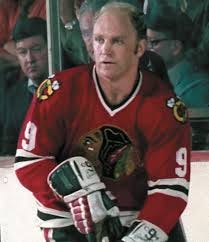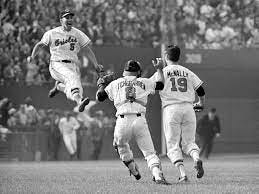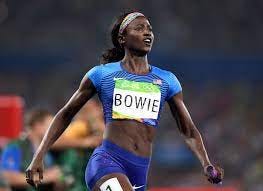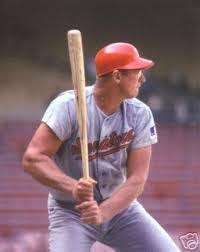They left us in 2023
Record-breakers, innovators, curmudgeons and scoundrels -- sometimes all in the same body -- enlivened sports and gave us memories that will be everlasting.
They left us in 2023:
Jim Brown died on May 19 in Los Angeles. He was 87. He was voted the best pro football player of the 20th century, having led the NFL in rushing in eight of his nine seasons before he retired at 30 to become a film actor. He won three MVPs, the first time as a rookie in 1956, and scored 126 touchdowns, one of his five NFL records. He worked with troubled youths and championed the cause of Muhamad Ali, but was arrested a number of times for domestic abuse and served four months in jail rather than accept counseling and admit guilt. He also was a lacrosse All-American and track star at Syracuse. “Make sure when anyone tackles you, he remembers how much it hurts.” — Jim Brown.
Dick Butkus died on Oct. 5 in Malibu, Ca. He symbolized football’s violence with his linebacker play, which earned him All-Pro status five different times in a 9-year career. Butkus intercepted 22 passes and recovered 27 fumbles. When he showed up at the Chicago Bears’ camp from the U. of Illinois, incumbent middle linebacker Bill George took a look at him “and started packing my bags.” Butkus played on a chronically bad knee and sued the Bears for their lack of medical care, in a case that was settled out of court. He, too, became a noted actor. “I never set out to hurt anyone deliberately unless it was, you know, important, like a league game or something.” — Dick Butkus.
Bob Knight died on Nov. 1 in Bloomington, Ind. He was 83. Knight coached three NCAA basketball championship teams at Indiana and briefly led college hoops in alltime wins. He also coached the U.S. Olympic team to an 1984 gold medal. In 29 years at Indiana Knight won 11 Big Ten titles, but he became nationally known for his outbursts, including the night he threw a chair across the court against Purdue, or his scrap with a Puerto Rican policeman as he was coaching in the Pan-American Games, for which he was convicted in absentia. Knight was fired after a clash with an IU student, but coached six and a half seasons at Texas Tech and wound up with 962 wins. “Coach Knight had the courage — key word ‘courage’ — to coach me and not try to be my friend.” — Isiah Thomas.
Bobby Hull died on Jan. 30 in Wheaton, Ill. He was 84. “The Golden Jet” led the NHL in goal-scoring seven different times, and was the MVP of the NHL and the rival World Hockey Association twice each. Hull had an irresistible shot, delivered with a revolutionary curved stick blade, and scored 618 goals,, although his son Brett, also an MVP, would surpass him with 741. Hull’s move to the WHA gave the new league credibility and helped escalate hockey salaries. His obituary is also littered with incidences of domestic abuse. “The idea was not to stop that shot, but to avoid getting killed.” — goaltender Glenn Hall.
Pat McCormick died on March 12 in Santa Ana, Ca. She was 92. As Patricia Keller, she grew up diving off the Naples Canal Bridge in Long Beach and was sometimes apprhended by police. She married Glenn McCormick, who became the Olympic diving coach, and won the springboard and platform diving gold medals in the 1952 Olympics and in 1956 she won both again, after she had given birth to her first child eight months prior. That year she became the second woman to win the Sullivan Award as America’s best amateur athlete. In 1951 McCormick won all five national championshp events. Her daughter Kelly won silver and bronze diving medals in the 80s. “Her only problem was that if everybody dived lousy, Pat dived lousy. If everybody dived like a champion, Pat dived better. She’s not going to let anybody beat her.” — Sammy Lee.
Ralph Boston died on April 30 in Peachtree City, Ga. He was 83. During the most contentious Cold War days, Boston won Olympic gold in the long jump at the 1960 Olympiics, beating Soviet star Igor Ter-Ovanesyan and teammate Bo Roberson. He pushed the world record to 27 feet and a half-inch in 1961 after he broke Jesse Owens’ mark, which had stood for 25 years. Boston won silver in 1964 and was the bronze medalist in 1968 when Bob Beamon, one of his students, soared 29 feet, 2 1/2 inches. Sprinters Tommy Smith and John Carlos had been suspended for their Black Power salutes on the medal stand, so Boston stood on the podium without shoes, as a protest. Boston became a track broadcaster for ABC. “Once the game was over, we went back to being Igor and Ralph, Ralph and Igor. And that was really great.” — Ralph Boston.
Brooks Robinson died on Sept. 26 in Owings Mills, Md. He was 86. He personified the third base position during the 60s and 70s, was an American League MVP, won 16 Gold Gloves in a 16-year span, and had 2,848 hits and played 23 years, all with Baltimore. His magical defense is still the answer to any word-association involving the 1970 World Series, against Cincinnati. “I’m beginning to see Brooks in my sleep. If I dropped this plate, he’d pick it up on one hop and throw me out at first.” — Sparky Anderson, Cincinnati manager.
Tori Bowie died on May 2 in Horizon West, Fla. She was 32. In 2017 Bowie won the 100 meters at the World Championships in London, a year after she had won silver at the Rio de Janeiro Olympics. She also won Olympic bronze in the 200 meters and was on a gold medal relay team. Bowie was an indoor NCAA long jump champ for Southern Mississippi in 2011. She died of preclampsia, a complication of childbirth, and her baby girl, to be named Ariana, was stillborn eight months into her pregnancy. “The medical community must do its part. There are so many stories of women dying who haven’t been heard. Doctors really need to hear the pain of Black women." — Allyson Felix.
Bud Grant died on March 11 in Bloomington, MN. He was 95. He coached the Minnesota Vikings to four Super Bowls, without winning one, but as the Winnipeg Blue Bombers coach he won four Grey Cups. Overall he won 286 games. He might have been the best athlete to become a pro coach in any sport, as a first-round draft choice of the Philadelphia Eagles and a substitute on the 1960 Lakers’ championship team. He was the oldest NBA champ when he died. For Winnipeg, he once intercepted five passes in a playoff game. His Vikings team practiced outside, no matter the temperature, and did not have heaters on their sideline. “A good coach needs a patient wife, a loyal dog and a great quarterback, but not necessarily in that order. I happen to have been blessed with all three.” — Bud Grant.
Willis Reed died on March 21 in Houston, Tx. He was 80. Reed was the fulcrum of the New York Knicks’ championship teams in 1970 and 1973 and was the MVP in both Finals, as well as the league MVP in 1970. Reed averaged 18.7 points and 12.9 rebounds for his 10-year career. He was a clever left-handed scorer in the lane and a relentless competitor. He wasn’t expected to play in Game 7 of the ‘70 Finals against the Lakers because of a bad thigh injury, but when he limped out for warmups, he ignited Madison Square Garden, and played 27 minutes in the Knicks’ victory. The Grambling alum was also one of the top NBA players who went to an HBCU. “He was just a big country boy with a big heart. I copied his handwriting, it was excellent. I copied his tenacity on the court. He was a magnificent role model.”— Walt Frazier.
Vida Blue died on May 6 in Tracy, CA. He was 73. The lefthander splashed into the American League like few others. He pitched a no-hitter near the end of the 1970 season and then went 24-8 in 1971 to win the Cy Young and the MVP awards for Oakland. He would win 20 games in two more seasons and finished in the top ten in Cy Young voting four other times. Blue served jail time for cocaine possession and was suspended for an entire season but still won 209 games with 37 shutouts. “He’s got great people skills and I think that’s been a downfall. People have allowed him to get away with more.” – Derrick Blue, Vida’s son.
Dick Fosbury died on March 12 in Salt Lake City. He was 76. Few people have ever altered a sport the way Fosbury did when he began high-jumping head first, clearing the bar backward. He began experimenting with the Fosbury Flop at his Medford, OR high school. In 1968 he won the Olympic Trials and then the gold medal, at 7 feet, 4 1/4 inches. By 1972, twenty-eight of the 40 jumpers were using the flop in the Olympics. Today it’s as commonplace as the soccer-style kicker. “The nickname is poetic. It’s alliterative. It’s a conflict.” — Dick Fosbury.
Tim McCarver died on Feb. 16 in Memphis. He was 81. He was the catcher on the Cardinals’ 1964 and 1967 world championship teams, then went to Philadelphia and helped rehabilitate Steve Carlton’s career. McCarver was a .271 hitter over 21 seasons. He’s better known as a groundbreaking and fearless TV analyst for the Phillies, Mets, Yankees and Giants and on national networks for 23 World Series and 20 All-Star Games. His insights into pitching and defensive strategy had not been heard on TV previously. “If you’re going to talk about the best broadcaster in baseball history, Tim McCarver’s name has to be at the very top.” — Dick Enberg.
Guillermo Hernandez died on Nov. 20 in Sebring, Fla. He was a lefthand reliever who did not get a Cy Young Award or an MVP vote except in 1984, when he captured both awards for the world champion Tigers. He saved 32 consecutive games and 35 in 37 opportunities, and he led the American League with 80 appearances. Hernandez went two innings for 18 of those saves. He began building for his big year in 1983 with Philadelphia, when he began throwing his screwball more often, and then added a cut fastball during the championship year. He also was the first Puerto Rican to win a Cy Young Award. “I’m here to make money and provide for my family. I came into the world poor and naked but I don’t want to die with no clothes on.” — Willie Hernandez.
Tim Wakefield died on Oct. 1 n Hingham, Mass. He was 57. Wakefield pitched until he was 44 and knuckleballed his way to 200 victories, 186 of them with the Red Sox. He was 2-1 with a 2.57 ERA in Boston’s ALCS loss to the Yankees in 2003, and was 2-0 for Pititsburgh with a 3.00 ERA in a 7-game NLCS loss to the Braves. He’s third in wins among all Red Sox pitchers behind Cy Young and Roger Clemens and is the alltime leader in innings. He was signed as a first baseman until he discovered the knuckler. He was also unusually involved in charity work and was nominated eight times by Boston for the Roberto Clemente Award, which he won in 2010. “I can’t describe what you mean to me and my family. I will never be able to replace a brother and a friend like you.” – David Ortiz.
Larry Mahan died on May 7 in Valley View, Tx. He was 79. Mahan was a towering figure among rodeo cowboys, winning six all-around world championships from 1966 through 1973 and making the Rodeo Hall of Fame in 1979. He was the first cowboy to make $50,000, in 1967, and made $280,000 in 1970. He also was the first to qualify in three different National Finals Rodeo events (saddle bronc, bull, and bareback). Mahan was one of the early merchandisers in the game, establishing a boot collection, and he drew attention for his colorful shirts and chaps and his fast cars. “Football had Joe Namath, boxing had Muhammad Ali, and rodeo had Larry Mahan.” — Bobby Steiner, rodeo cowboy.
Frank Howard died on Oct..30 in Aldie, Va. He was 87. “Hondo” was a 6-foot-7 behemoth who hit 44 home runs in 1968, which was one of the most pitching-dominant seasons in history. That was eight more homers than anyone else. Howard grew up in the Dodgers’ organization but became the Washington Senators’ first real star, pounding home runs that rattled faraway seats in D.C. Stadium. He wound up with 382 home runs and had an outstanding OPS-plus of 142 for his career. Howard was also known for his gregarious nature and his epicurean appetites. “I think without question he is the biggest, strongest guy who ever played the game.” – Ted Williams.
Dick Groat died on April 27 in Piittsburgh. He was 92. Most people associate the champion 1960 Pirates with Bill Mazeroski, but Maz’s double play partner was actually the NL MVP that year. Groat was the batting champion with a .325 average and hit .286 or his career with 2,138 hits and only 38 home runs. He also helped the Cardinals to the 1964 championship. But at Duke he was better known as an All-American basketball player and is still the only player to lead the nation in scoring and assists in the same season. Groat was the first Blue Devil player to have his jersey retired. He did not play an inning of minor league baseball. “He makes a great play and makes it look easy. Then he comes back and plops in the dugout as if nothing has happened.” – Danny Murtaugh, Pirates’ manager.
Billy Packer died on Jan. 26 in Charlotte, N.C. He was 82. Packer’s blunt analysis teamed with Dick Enberg’s smooth professionalism and Al McGuire’s street talk to make college basketball an important national TV sport. He played in the Final Four with Wake Forest in 1982, but went into private business and then was recruited to do ACC games on a locally-based network. He worked 35 consecutive NCAA tournaments for NBC and CBS, but was most famous for working the epic Michigan State-Indiana State NCAA championship game in 1979, the Magic Johnson-Larry Bird game that remains the highest-rated college game ever. Packer had no problem second-guessing coaches and players, and was no purveyor of happy talk. “He wore the black hat better than anyone I’ve ever seen. North Carolina thought he was in the bag for Duke. Duke thought he was pro-North Carolina. He loved it.” —Jim Nantz.








Awesome read.
So many ...
Thank you, Mark